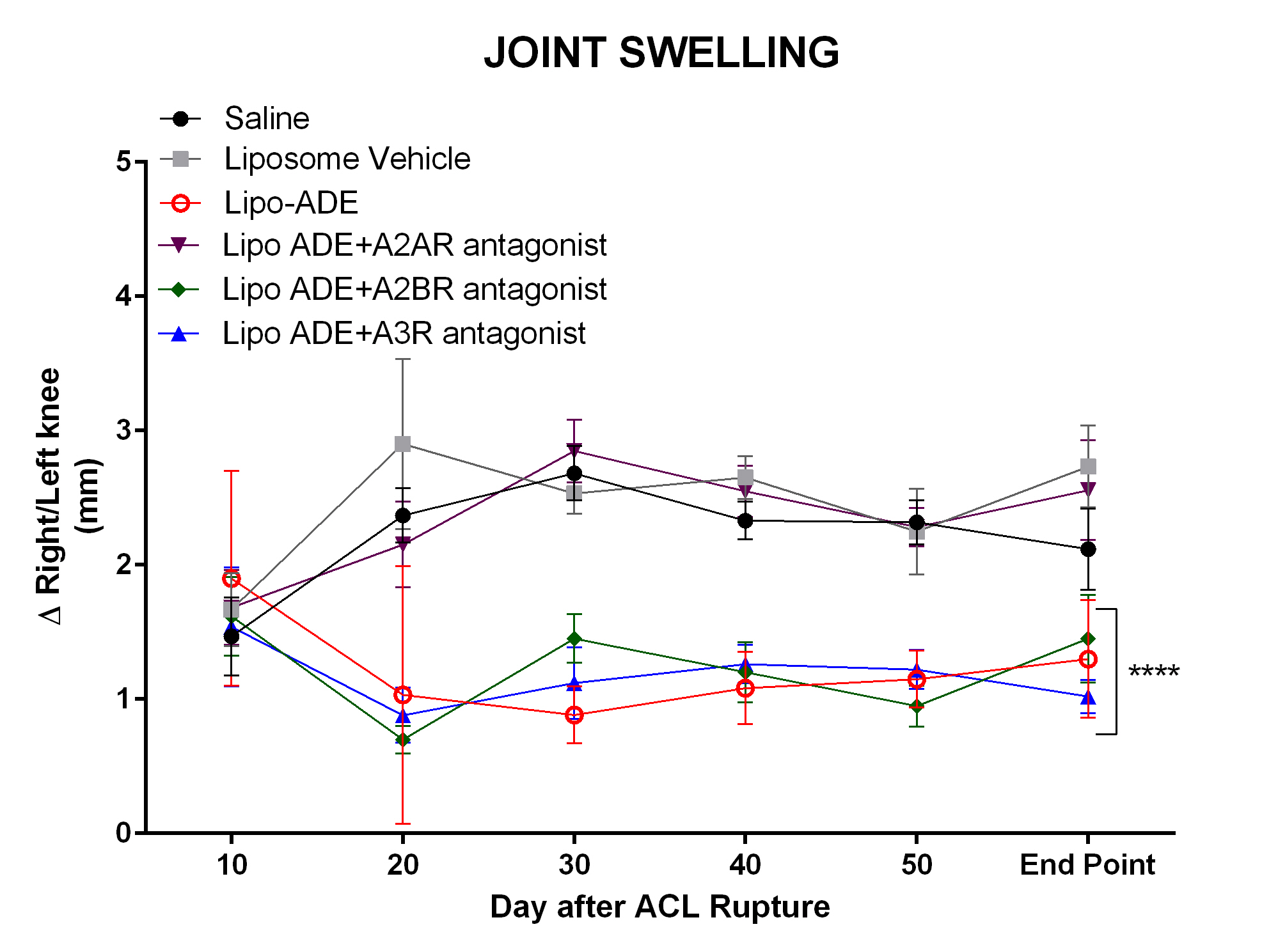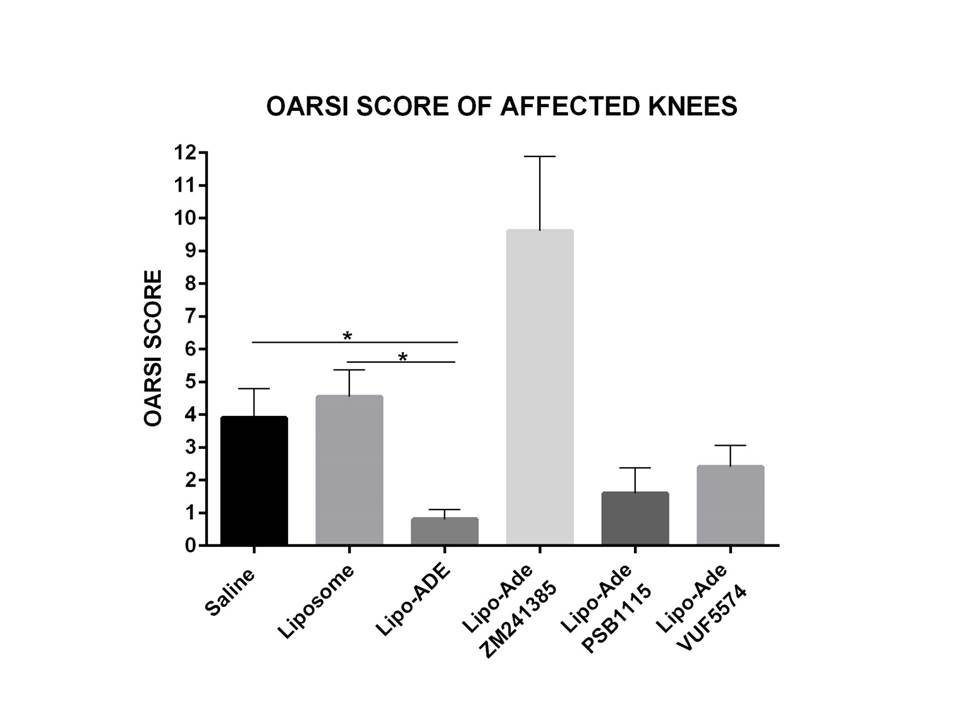Session Information
Session Type: ACR Poster Session C
Session Time: 9:00AM-11:00AM
Background/Purpose: Extracellular adenosine is highly regulated and plays an important homeostatic role via occupancy of cell surface receptors (A1R, A2AR, A2BR, A3R). Mice lacking A2AR develop spontaneous OA and A2AR-deficient chondrocytes express MMPs and Col10, suggesting a homeostatic role for adenosine/A2AR in cartilage. We tested whether diminished extracellular adenosine (generated from ATP by CD73 and/or CD39) contributes to OA and whether adenosine replacement ameliorates OA.
Methods: Chondrocytes were harvested from neonatal mice. ATP in chondrocytes and supernates was measured by luciferase-mediated bioluminescence, adenosine by HPLC and mRNA by RT-PCR. Modified OARSI scoring was carried out on safranin O-stained sections of knees from 1 yr old CD73KO mice. Post-traumatic OA was induced by application of mechanical load on rat tibia (14 wk old). Liposomal suspensions (100µl) +/- adenosine (10mg/Kg) +/- A2A, A2B or A3 receptor antagonists (1 mg/Kg, 5-6 rats/group) were injected every 10d for 56d.
Results: Treatment of rat tibial explants with IL-1β (5 ng/ml) markedly reduced ATP and adenosine release (38±17% of control, p<0.05, n=3; 76±7% of control, p<0.01; n=5, respectively). Moreover, applying a physiologic load increased adenosine release from untreated (199±27% of control, p<0.001, n=5) but not IL-1β treated explants (77±6%, p<0.01 vs control, n= 5). IL-1β–treated chondrocytes have reduced expression of ATP transporters pannexin-1 and ankh as well as CD73 (45±15%, 13±5%, 37±17%, p<0.05 of control, n=3, respectively). Mice lacking CD73 have mild OA (modified OARSI 1.5±0.4, p<0.05 vs. WT, n=5), consistent with findings in CD73-deficient patients (Arthritis Rheumatol. 2015; 67 (10)). Replacing adenosine by intraarticular injection of adenosine-liposomes reduced knee swelling and prevented OA changes in a rat model (Fig. 1 and 2) compared to saline or empty liposomes. An A2AR antagonist, but not A2BR or A3R antagonists, reversed these effects (Fig. 2).
Conclusion: Endogenous adenosine production from ATP maintains cartilage homeostasis; inflammation/injury reduces ATP release and adenosine production contributing to cartilage destruction. Adenosine replacement prevents OA development and may be useful to treat OA. Fig. 1
Fig. 2
To cite this abstract in AMA style:
Corciulo C, Lendhey M, Wilder T, Kennedy O, Cronstein B. Extracellular Adenosine Deficiency Plays a Role in the Pathogenesis of Osteoarthritis (OA) and Adenosine Replacement Prevents Post-Traumatic Osteoarthritis [abstract]. Arthritis Rheumatol. 2016; 68 (suppl 10). https://acrabstracts.org/abstract/extracellular-adenosine-deficiency-plays-a-role-in-the-pathogenesis-of-osteoarthritis-oa-and-adenosine-replacement-prevents-post-traumatic-osteoarthritis/. Accessed .« Back to 2016 ACR/ARHP Annual Meeting
ACR Meeting Abstracts - https://acrabstracts.org/abstract/extracellular-adenosine-deficiency-plays-a-role-in-the-pathogenesis-of-osteoarthritis-oa-and-adenosine-replacement-prevents-post-traumatic-osteoarthritis/


